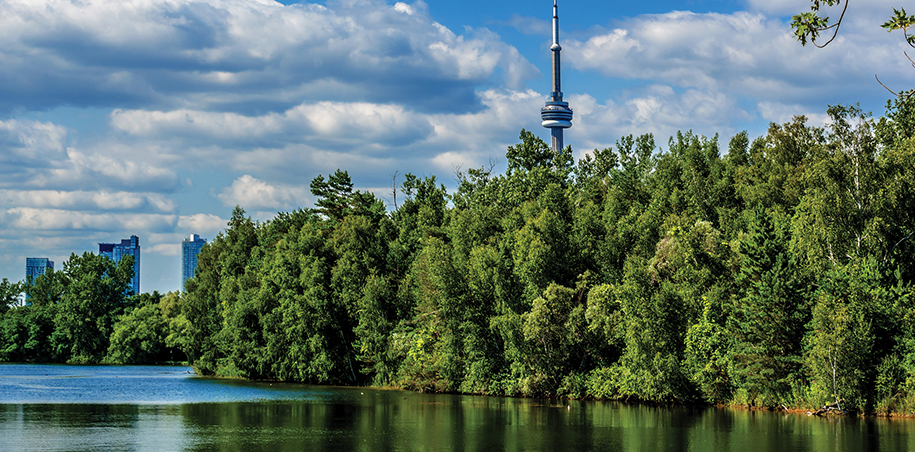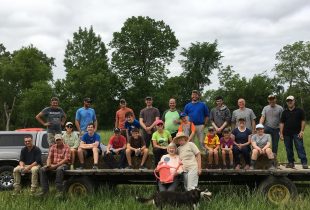From marshes and bogs to the Big Smoke
How conservation helps cities like Toronto enjoy clean, healthy water.

If you were to look out from the top of the C.N. Tower across Toronto, you would see a bustling downtown core, part of Lake Ontario’s expansive waterfront, and many of the diverse neighbourhoods and boroughs that more than 2.6 million people call home.
Unique as they all are, each and every Torontonian depends on the same thing: safe and healthy water quality. And although many of us—in urban and rural settings—may not know it, we depend on wetlands to make sure our water stays that way.
In Toronto alone, there are six recognized wetland areas, including parts of the East Don Valley, Rouge River and the Toronto Islands. Along with other wetlands across Ontario, their many functions directly affect our quality of life (and this goes for many, many urban centres the world over as well). Likewise, in highly developed areas of Canada, wetland loss has also been known to cause a decline in water quality and biodiversity.
It’s through a wetland’s natural filtering process that harmful chemicals, nutrients, and other pollutants including nitrogen, excessive carbon, sediment, and phosphorus are removed from the water and absorbed by plants and developing peat. Before water carries on its journey towards our rivers and lakes, our wetlands have worked hard to ensure that it’s safe for cities like Toronto.
When they are prioritized, protected, and cared for, Ontario’s wetlands—and the ecosystems therein—also help us with more than just improving water quality. They also help control flooding and erosion, ensure that we can rely on a long-term source of groundwater, provide habitats for wildlife and vegetation, mitigate climate change (thanks to the carbon filtering they do so well) and offer us recreational and educational destinations. This is why we’re asking for Canadians’ help with Rescue Our Wetlands, the largest conservation campaign in North America’s history.
It’s a given that the importance of wetlands—and how they affect quality of life in cities like Toronto—may not be top of mind for many of us. But it pays to stay informed, especially when you consider the fact that southern Ontario has lost at least 72 per cent of its wetlands since the European settlement. Today, wetland conservation in and around Toronto (and across Canada) is vital to ensuring our water remains safe and healthy. Whether you’re living in a city, a town, a village, or on a farm, healthy, thriving wetlands will benefit you and your family.
Learn more about how DUC’s work is helping Canada’s fresh water.



